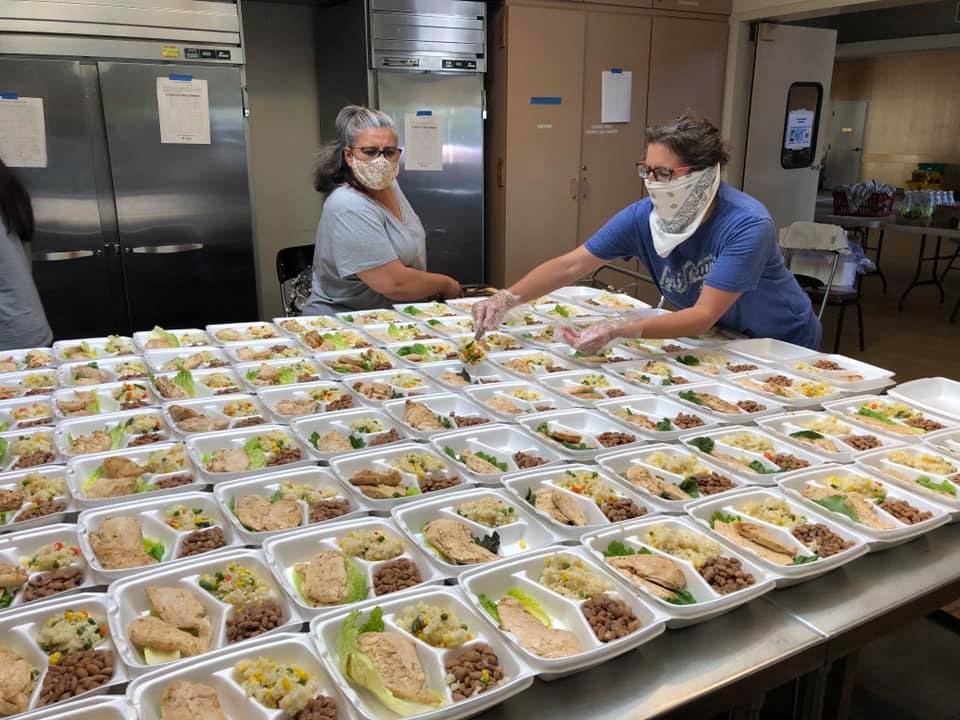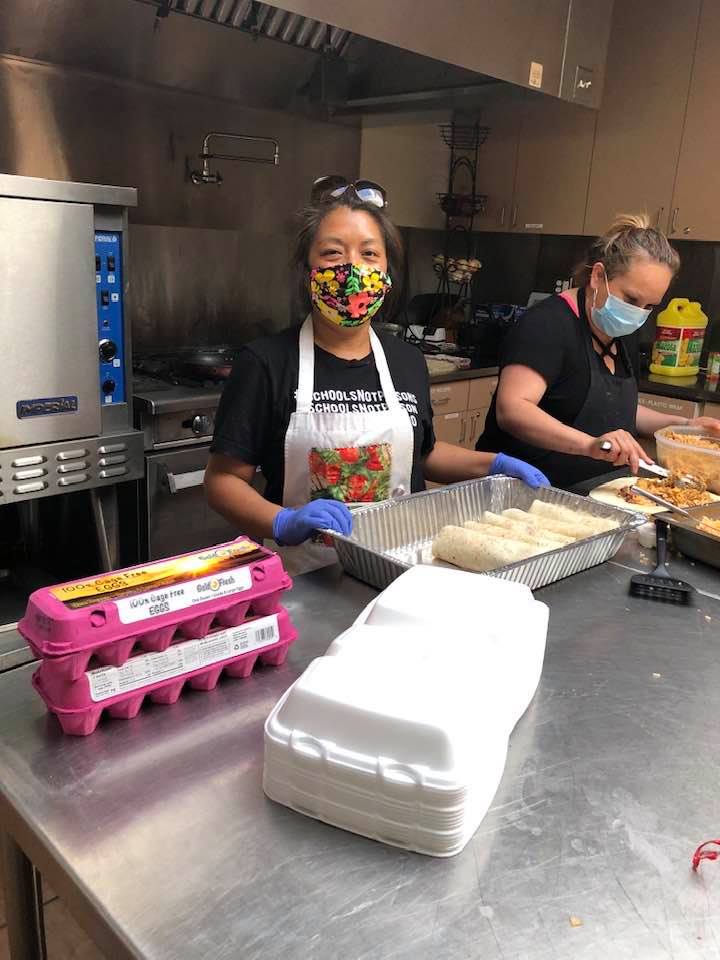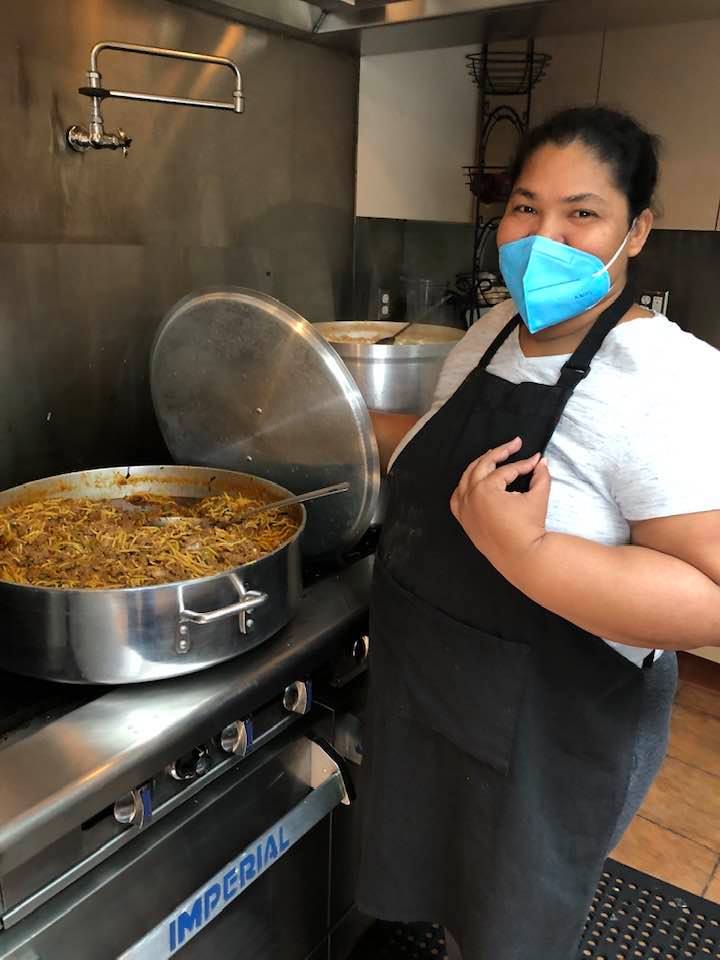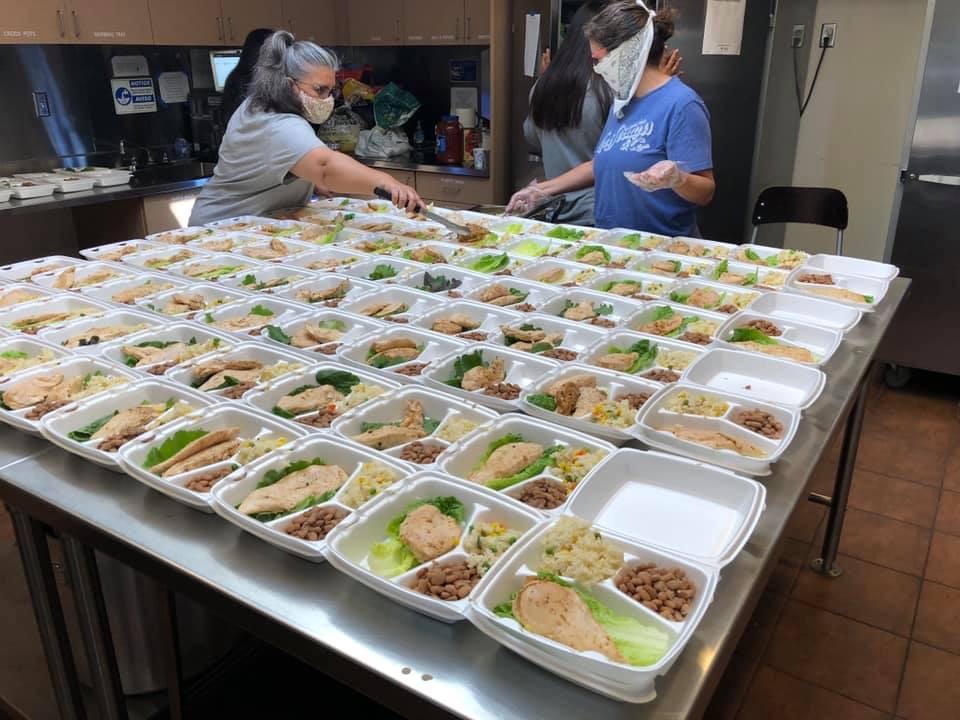California church caring for, feeding newcomers aided by disaster relief grant
 Six days a week, the kitchen at Eden United Church of Christ in Hayward, Calif., is bustling. Volunteer cooks – primarily asylum-seeking mothers from Mexico and Central America – are using their favorite recipes to prepare hot meals that provide nourishment and a taste of home to many of their neighbors.
Six days a week, the kitchen at Eden United Church of Christ in Hayward, Calif., is bustling. Volunteer cooks – primarily asylum-seeking mothers from Mexico and Central America – are using their favorite recipes to prepare hot meals that provide nourishment and a taste of home to many of their neighbors.
The meals are delivered late afternoon to 100 newcomers attending the local public schools and their caregivers. The asylum-seeking youth and their family members receiving food may be living in households under quarantine or in isolation, because someone is recovering from COVID-19 at home.
Many adults being served by Eden’s meal program were working one or more low-wage jobs to cover basic necessities, but lost that work due to the pandemic. Children enrolled in public schools can access free breakfasts and lunches, “but what about dinner, the weekends, school vacations, and what about their families?” asked the Rev. Arlene Nehring, the congregation’s pastor.
To help Eden provide those meals, UCC Disaster Ministries just granted the church $2,500 from its COVID-19 Refugee and Asylum Fund to purchase groceries for the hot meal program. The Wider Church Ministries program assists congregations and community organizations offering relief to refugees and asylum seekers with needs caused or worsened due to the pandemic.
Nehring said the UCC grant is enough to cover hot meals for 100 people for two weeks.
 Eight volunteer cooks, women from Mexico and El Salvador, and family teams from Nicaragua and Columbia, are preparing the food, assisted by Pastor Nehring, the one non-Latinx stirring a pot. (“I don’t pretend to be a good Latinx chef,” she said.“When I’m cooking, the cuisine is Tex-Mex.”)
Eight volunteer cooks, women from Mexico and El Salvador, and family teams from Nicaragua and Columbia, are preparing the food, assisted by Pastor Nehring, the one non-Latinx stirring a pot. (“I don’t pretend to be a good Latinx chef,” she said.“When I’m cooking, the cuisine is Tex-Mex.”)
“The real story,” Nehring said, “is that these immigrant women are volunteering in spite of the way they are suffering from the pandemic, giving substantial time and talent to take care of others in more difficult circumstances. They are knocking themselves out for others,” including “kids they’ve never met.”
Micaela Serrano Cuevas, a native of Mexico, is the executive chef for UIY Hot Meals, and a popular cook at a local restaurant. She was furloughed because of the pandemic, but was able to immediately step in at Eden to help produce a large volume of delicious meals, assure food safety, and provide coaching to others who didn’t have much experience cooking in large quantities. She also enlisted her niece, a pastry chef, and her two young-adult daughters.
Lucy, from El Salvador, first came to Eden UCC a year ago, after she and her children (17, 15 and 10) were released from an Immigration and Customs Enforcement detention center. The family walked six miles to the church from the apartment in which they were renting sleeping space on the kitchen floor. “Someone told us you helped immigrants,” Lucy said. They transitioned to a shelter because of coronavirus, where the kitchen was closed. So they came to the church several days a week to help prepare the meals. Pre-COVID-19, Lucy was working odd jobs. With Eden UCC’s help, her sons enrolled in an international high school and her daughter in a bilingual elementary school.
 Mayerling Perez Oliveras is from Nicaragua. She and three of her children (10, 6, and 3) have lived at the church since May 2018. Her husband, Alejandro, joined the family last October after winning his asylum case in the Florence, Ariz., ICE detention center where he had been held since April 2018. Eden UCC helped Alejandro secure legal representation in Arizona and transportation to California.
Mayerling Perez Oliveras is from Nicaragua. She and three of her children (10, 6, and 3) have lived at the church since May 2018. Her husband, Alejandro, joined the family last October after winning his asylum case in the Florence, Ariz., ICE detention center where he had been held since April 2018. Eden UCC helped Alejandro secure legal representation in Arizona and transportation to California.
“Migrant women are so demeaned in U.S. culture,” Nehring observed. “At Eden, by contrast, we honor their skills and compassion for strangers.”
The congregation has forged a deep relationship with its immigrant neighbors over the past 20 years, the pastor said. Today the neighborhood is 65 to 70 percent first-generation Mexican, primarily people from the farming states that stretch from Guadalajara to the Gulf of Mexico, just above Mexico City.
“With COVID-19, everything is harder for newcomers,” Nehring said. “Their legal cases are on hold. They cannot get a Social Security number until they go to court. They are not eligible for employment without a Social Security number. They cannot get a driver’s license. They are supposed to prove their children are enrolled in school and attend. So how exactly are they supposed to pay for food and rent?”
The church also provides sanctuary to immigrants and coordinates an active interfaith accompaniment ministry with asylees, including unaccompanied immigrant youth and children from Central America, Mexico and Colombia.
Accompanying asylum seekers is “a marathon experience, not a sprint,” Nehring said. “Our experience illustrates why we need meaningful immigration reform. Meanwhile we try to figure out the next best thing to do with the resource we have. We are trying to do the best we can in a messed-up situation.”
Top photo (L-R): Rosemary Vasquez and Leah Rosenbloom, volunteer “platers” and “door-dash drivers” from Cherryland Elementary School.
Middle photo (L-R): First-generation Mexican immigrants Viki Vivoldo (Companeras Ministry Leader, EUCC) and Olga Gutierrez (school counselor, Hayward Unified School District) assembling burritos.
Bottom photo: Asylum-Seeker Mayerling Perez Oliveras, stirring one of her many traditional Nicaraguan dishes.
Related News
A Prophetic Call for Justice and Peace in Palestine
The executive leaders of the United Church of Christ have issued the following statement...
Read More‘Love is Greater Than Fear’: Regional Youth Events get to the heart of gospel message
United Church of Christ teens attending this summer’s Regional Youth Events (RYE) are...
Read MoreUCC desk calendars available to order now
Prepare for your day, month and year with the United Church of Christ desk calendar —...
Read More


